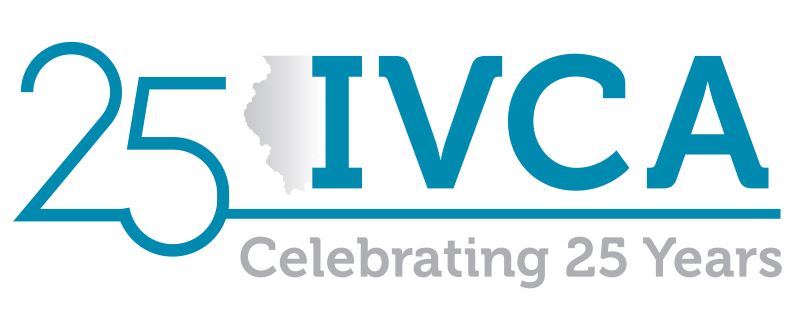Stericycle, Inc.
Management: Mark Miller, President, CEO and Director
Venture Capital Partners: Bain Capital Ventures, Madison Dearborn Partners
Medical devices are life changing, but at the end of their lifecycle, they can pose risks in the pathogens and chemicals they carry. To eliminate these threats, hospitals and clinics turn to Stericycle, Inc., for help.
Founded in 1989, Stericycle ranks as North America's largest provider of regulated waste management - collecting transporting and treating regulated medical waste. It also provides services to manage water and "sharps" (needles and scalpels); mail-back programs for sharps and mercury; compliance training; and consultations on prescription waste-management, product recalls and regulations under the Occupational Safety and Health Administration.
In its first four years, Stericycle prospered from organic growth but, in 1993, it began to focus on acquisitions as a means of development. Since its first purchases in 1993, Stericycle has acquired 125 medical waste-management companies. After its initial four acquisitions, the company really stepped its pace of buyouts. And, not surprisingly, the acquisitions, the organic growth and the technology advances needed to destroy or sterilize medical devices required capital. In 1996 Stericycle filed for an initial public offering.
After going public, the company began to benefit from its purchases. Both shareholder equity and revenues served to fuel more acquisitions and technology advances. Interestingly it would be tempting targets of two major companies that led Stericycle to connect with private-equity partners.
Enter Bain Capital and Madison Dearborn Partners
The buyouts introduced Stericycle to Bain Capital and Madison Dearborn Partners. With offices in Boston, Chicago and New York, Bain Capital has amassed an impressive portfolio of investments. Bain Capital Ventures, one arm of the asset-management firm, manages $1 billion in investments. A growth-oriented company like Stericycle proved a prime candidate for funding.
Like Bain, Madison Dearborn Partners in Chicago boasts a notable portfolio. It focuses primarily on managed buyouts or structured/growth equity transactions. A company like Stericycle that built itself not only organically but through acquisitions proved enticing to Madison Dearborn, and they joined forces with Bain for a late-stage funding that enabled Stericycle to buy Browning-Ferris Industries and Allied Waste Industries. The markets they served attracted Stericycle.
The price tag was a substantial $410 million. To finance a portion of it, Stericycle entered into an agreement with Bain Capital and Madison Dearborn for $75 million, Stericycle issued 75,000 shares in new convertible stock, representing about 22 percent, of the company. Each firm then received half the new stock.
The deal closed in August 1999 and Stericycle President and Chief Executive Officer called it an "historic milestone." It didn't take Stericycle long to prove that its confidence wasn't misplaced.
Eight Years Later
With the addition of Browning-Ferris and Allied, Stericycle continued to thrive. Today it service territory reaches beyond the United States and into Canada, Mexico and South America. It also has established itself in the United Kingdom, Ireland, Australia and Asia.
Bain and Madison Dearborn held their Stericycle stock for two years and, in 2001, the company placed another stock offering that included some of its shares as well as a portion of the Bain and Madison Dearborn holdings. The two firms continue to hold some stock in the company.
Stericycle's operations now include 50 North American processing facilities and 96 transfer/collection sites. With its international presence, Stericycle provides its services to more than 375,000 customers and employs more than 5,000 people.
Growth also has sparked financial rewards. Its market capitalization has increased to $4.4 billion. In its most recent fiscal year, sales exceeded $789 million, up nearly 30 percent, and net income rose 56 percent to $105 million. It operates with more than $70 million in cash.
Stericycle also focuses on developing technologies. It holds numerous patents in the U.S. and abroad for its methods and devices used in disinfecting and processing waste.
Stericycle has taken quite a journey in less than 20 years, beginning as a small, independent medical-waste company to the continent's largest. In the process, it has nurtured a flexibility and willingness to explore new opportunities that promises to drive its progress in the years ahead.
|
A Snapshot of Stericycle -The largest medical waster management company in North America. -Headquartered in Chicago's suburbs with facilities throughout the U.S, Asia, Europe and South America. -More than 5,000 employees, including 15 at its corporate headquarters. |
A Snapshot of Stericycle and Venture Capital -Stericycle issued 75,000 shares of new stock to Bain Capital and Madison Dearborn Partners. -The two firms invested $75 million and each received half of the shares. -The $75 million was used toward the $410 million buyout of two medical waste management companies. |

